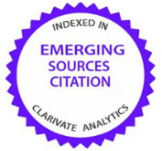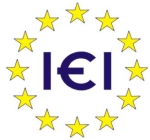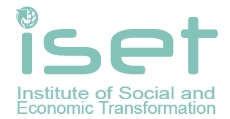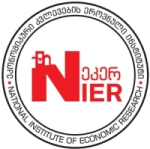Plagiarism policy
The Economics Ecology Socium Journal is committed to publishing only original material; that is, material that has neither been published elsewhere nor is under review elsewhere. The Economics Ecology Socium Journal uses software (open-source specialized tools) to detect instances of overlapping and similar text in the submitted manuscripts. Manuscripts found to have been plagiarized from a manuscript by other authors, whether published or unpublished, will incur plagiarism sanctions.
Presumptions or judgment of plagiarism, self-plagiarism, or other forms of misleading use of previous publications are subject to the following actions:
- Categorization of suspicion or faults by the Journal Editorial Board.
- Disclosing suspicion or irrefutable facts regarding plagiarism (with evidence and proofs) to the author or authors.
- Setting a time limit for discharge and/or clarification. This time limit, except for reasons of force majeure, is fixed and should not extend beyond 30 calendar days from the moment affected people are notified.
- Consideration, if appropriate, of clarifications and assurance support from the authors.
-
Editors respond to claims of plagiarism and unlawful use of published articles while defending the rights of authors and co-authors. The accuracy of all the information—including names and citations—presented in an author's work is their responsibility. If plagiarism is found, authors are accountable for the content they have provided. At the same time, we protect the journal's reputation from wrongdoing. As such, the publication reserves the right to reject a manuscript for plagiarism without further explanation and to take appropriate legal action.
Plagiarism Before Publication
The Economics Ecology Socium Journal will judge any case of plagiarism based on its own merits. Suppose plagiarism is detected by the editors, peer reviewers, or editorial staff at any stage before publication of a manuscript, before or after acceptance, during editing, or at the page proof stage. In that case, the author(s) will be warned and asked to rewrite or quote the text exactly and cite the original source. The article may be rejected if plagiarism is extensive and the author's institution or employer is notified.
Plagiarism After Publication
If plagiarism is detected after publication, the editor will conduct an investigation. The journal editorial office will contact the author's institute and funding agencies if plagiarism is found. The paper containing the plagiarism will be marked on each page of the PDF. Depending on the extent of the plagiarism, the paper may also be formally retracted.
The entire procedure will be in writing and duly supported by the management files of the journal. If necessary, the editor may require the advice or opinion of experts outside in order to have more and better elements to reach the best resolution.
The only sanction to be applied to authors who have committed plagiarism and self-plagiarism (if they have not given a clear and conclusive reply to doubts and objections) will be the impossibility of sending new manuscripts and communications to the Journal for two years. The Journal reserves the right, depending on the nature and effects of the issue to be addressed, to communicate results publicly and pass the records to other relevant administrative and jurisdictional bodies.
For purposes of defining concepts and categorizing the possible fault, this Journal will comply with those stipulated by COPE.
Plagiarism Software
For testing of plagiarism software is used: iThenticate and AntiPlagiarism.NET.
The editor conducts an initial plagiarism check for each manuscript submitted to us in the AntiPlagiarism.Net system. The Economics Ecology Socium Journal is a member of CrossCheck and has included all of its papers in the CrossCheck database. This allows other publishers to compare their manuscripts with those of the Economics Ecology Socium Journal. The CrossCheck service is accessed through the iThenticate web system, where a document is uploaded to check its similarity with the CrossCheck database and the Internet. The review generates a “Similarity Index” indicating the percentage of the manuscript that is consistent with other sources. iThenticate is unable to identify instances of plagiarism in manuscripts. Manuscripts that exhibit a high "similarity index" are subject to supplementary examination to guarantee accurate citation of pertinent sources.





















